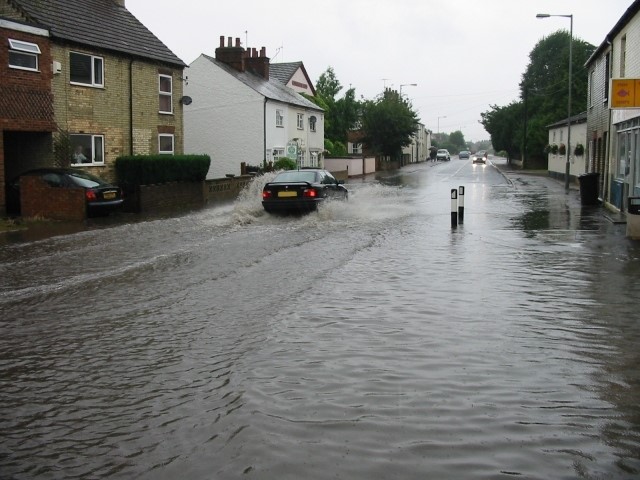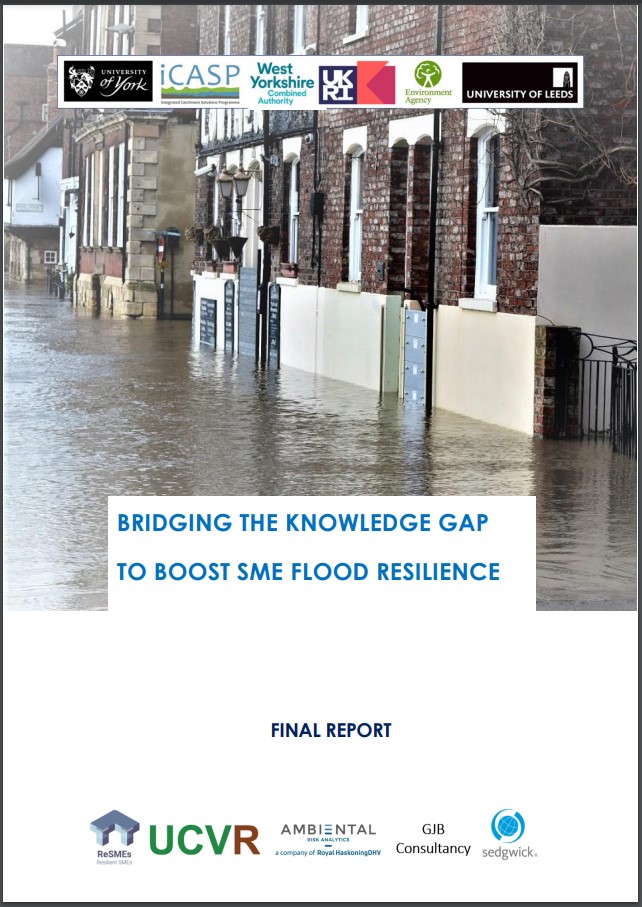By increasing understanding of the impacts of flooding on small and medium-sized enterprises (SMEs) this project will help a range of different sectors, including insurers and local authorities, to provide SMEs with better and more tailored support resulting in a more resilient sector.
99% of Yorkshire's private sector is made up of SMEs; these are organisations that are often vulnerable to flooding, and the knock–on effects to the regional economy of a flood event can be significant and far-reaching.
The lack of knowledge about the economic impacts of flooding on SMEs is an important gap that brings significant challenges to SMEs, insurers and lenders, sub-regional and Local Authorities and the National Government. This project seeks to fill the knowledge gap about SME flood risk management by working with Local Authorities and the insurance sector to increase their understanding on the economic costs and resilience efforts of SMEs. This project aims to enable SMEs to be better adapted to deal with any flood events in the future.
A key element of the project is the development of a robust methodology to assess the direct and indirect costs of flooding that will support local authorities to carry out future flood assessments and, in the event of a flood, prioritise their response in a consistent and timely way. This will also allow them to prepare more effective business plans and lobby for additional funds to be better prepared to respond to future flooding. In addition, the project will provide detailed information on the effectiveness of resilience measures and risk reduction activities to insurers, lenders and surveyors so that they can improve their confidence that that flood risk is properly priced and managed by SMEs – this will allow them to offer tailored products and increase the resilience of SMEs.
By improving the understanding of what actions SMEs can take to reduce their flood risk, manage flood damage when it occurs and avoid direct and indirect losses will, this will help to engage SMEs in flood protection across the region including as part of the iCASP Yorkshire Property Flood Resilience DEFRA pathfinder project (PDF)
The tools and methodology, created as part of this project, can be used by other Local Authorities in areas of flood risk. This project was mainly funded by iCASP.
Partners
iCASP
University of Leeds
University of York
West Yorkshire Combined Authorities
Upper Calder Valley Renaissance
Flood Risk Management Authorities in West Yorkshire
UKRI
Environment Agency
ReSMEs
Ambiental Technical Solutions
GJB Consultancy
Sedgewick
Project Team
Paola Sakai – University of Leeds
Marco Sakai – University of York
Patrick Bowes, Seamus McDonnell & Justin Wilson – West Yorkshire Combined Authorities
Virginia Saynor – Environment Agency
Flood Risk Managers of the Leeds City Region
Stephen Curry – Upper Calder Valley Renaissance
Graham Brogden – Insurance expert and former head of DEFRA's Round Table
Ian Gibbs – Cunningham Lindsay (and also co-leader of the Defra's task force Group 2)
COOP
Allianz
Ageas
BNP Paribas
RAB flood consultants
Duration
November 2019 – June 2021



Outputs
Final results of the project were shared at an event during Confluence 21 – Bridging the Gap to Boost SME Resilience – Wednesday 9th June 2021. You can listen to a recording.

Final Report
The personal information we request from you is used exclusively to help us understand the impact and use of the document. By providing your details and downloading this resource you consent to iCASP contacting you at a later date for feedback on how useful it has been. Your information will be kept secure in accordance with the Data Protection Act; it will be kept confidential and will be retained by iCASP for a maximum period of 10 years. You are under no obligation to respond and you can opt out at any time by contacting [email protected].
